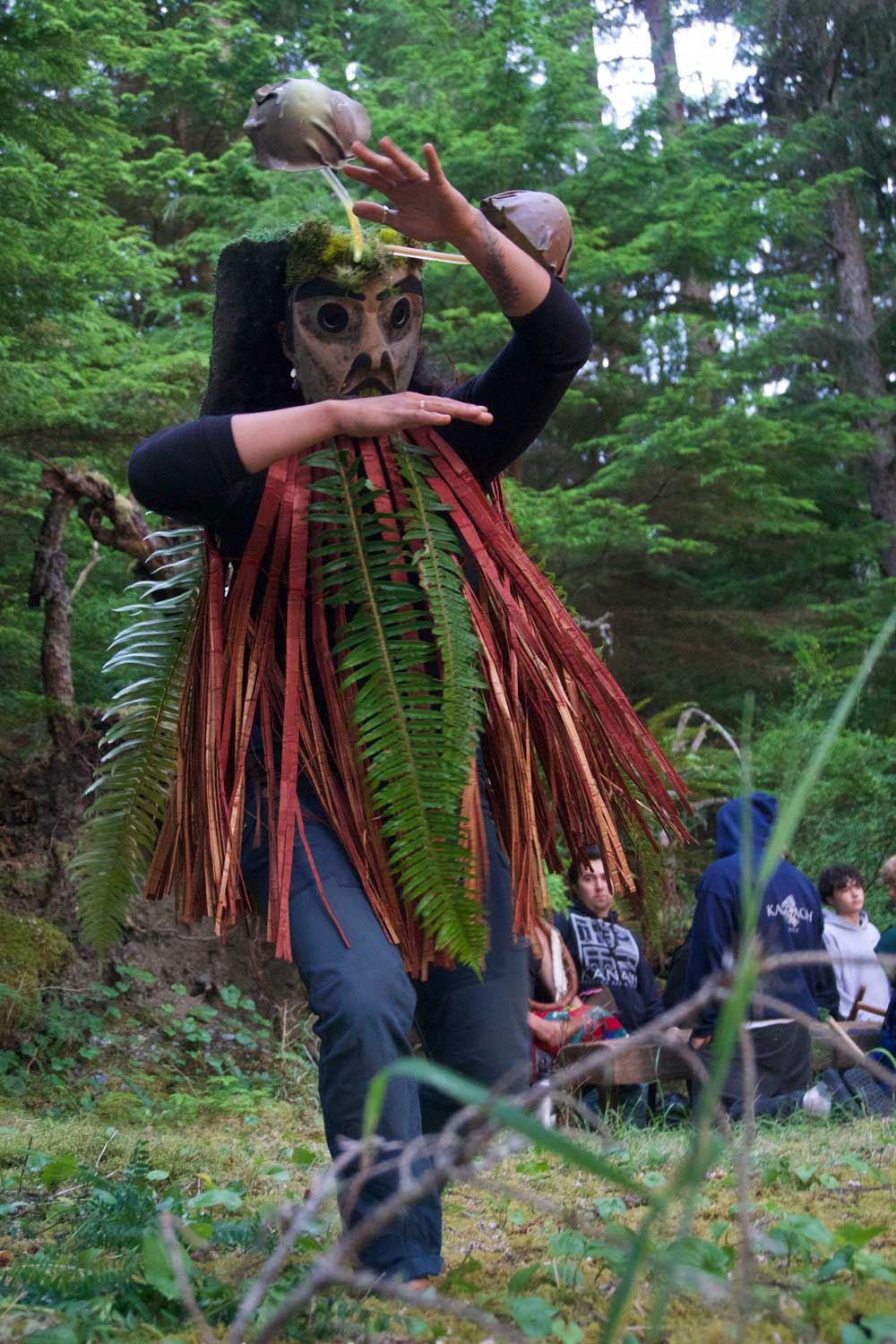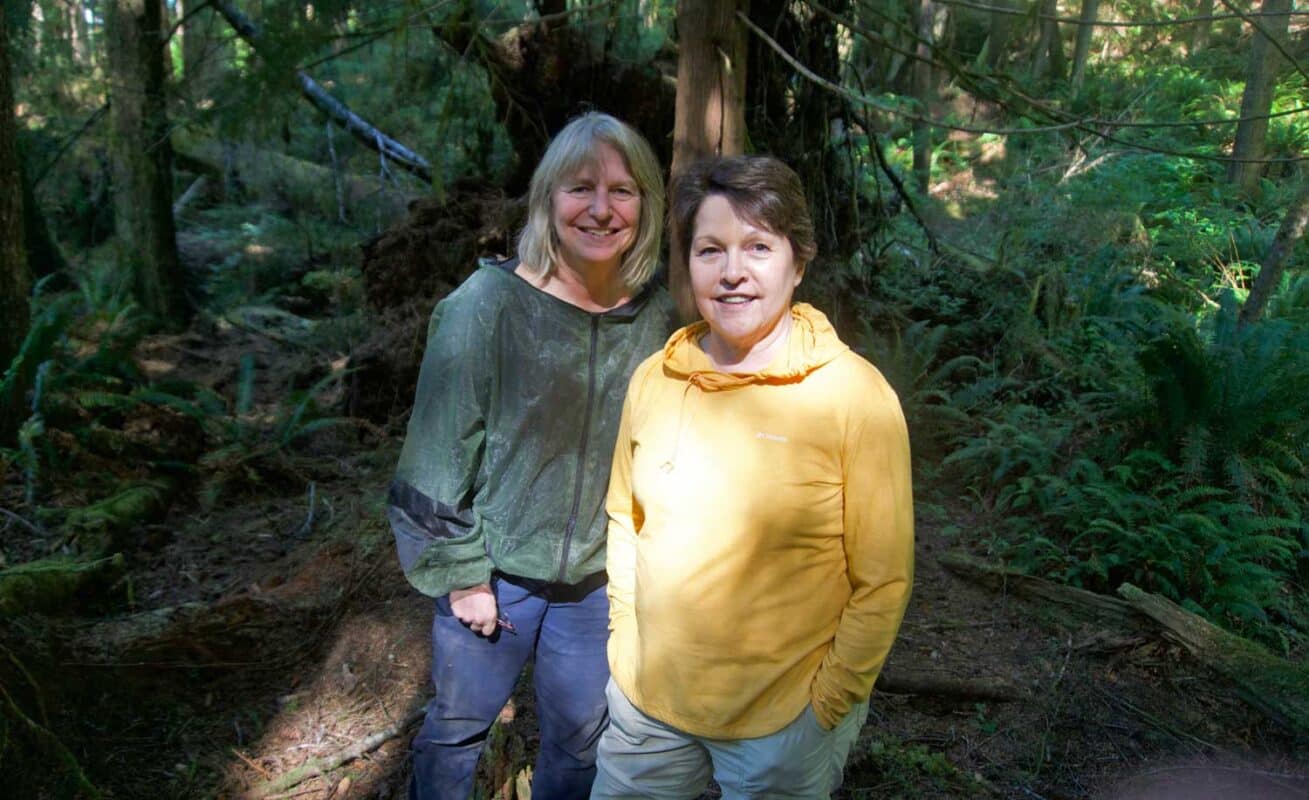Photo: Drs. Suzanne Simard and Teresa Ryan (Sm’hayetsk) at Tree of Life 2025 – Awakening Hiladi, hosted by the Awi’nakola Foundation in Ma’amtagila territory.
M embers of the Mother Tree Project and Program (MTPP) team from UBC’s Faculty of Forestry were honoured to participate in Tree of Life 2025 – Awakening Hiladi, a five-day cultural and ecological gathering hosted by the Awi’nakola Foundation in Ma’amtagila territory.
embers of the Mother Tree Project and Program (MTPP) team from UBC’s Faculty of Forestry were honoured to participate in Tree of Life 2025 – Awakening Hiladi, a five-day cultural and ecological gathering hosted by the Awi’nakola Foundation in Ma’amtagila territory.
Led by the Awi’nakola Foundation and the Ma’amtagila people, the annual event brings together Indigenous knowledge keepers, scholars, artists, and activists to advance shared goals of forest preservation, cultural revitalization, and climate resilience.
The MTPP delegation—part of UBC’s Department of Forest and Conservation Sciences—was invited to attend as honoured witnesses. Their participation reflects a growing partnership with the Ma’amtagila rooted in mutual respect and a shared commitment to forest stewardship.
“We as Ma’amtagila people admire you, we celebrate you, and we support you,” said Hereditary Chief Mak’wala (Rande Cook), welcoming the UBC team during the gathering.
Among the event’s highlights was Forestorium, a large-scale, site-specific operatic performance held in a remaining stand of unprotected old-growth forest in the Upper Adams region in Ma’amtagila Territory. The multimedia, interdisciplinary collaboration drew from direct interviews with scientists, Indigenous leaders, and activists—including Drs. Suzanne Simard and Teresa Ryan (Sm’hayetsk).
Forestorium also paid tribute to The Salmon Forest Project—a research and documentary initiative led by Dr. Ryan which explores the reciprocal relationships between salmon, forests, and Indigenous stewardship in coastal ecosystems.
The integration of science and artistic expression emerged as a recurring theme across the week’s programming.
“Science is only as good as the art and artists that support it,” said Dr. Simard, reflecting on the collaboration.
Both Drs. Simard and Ryan emphasized the value of gatherings like Tree of Life for fostering reciprocal relationships between Western science, Indigenous knowledge, and community-led conservation efforts.
“These events are vital spaces for reciprocal learning and collaboration—where science, Indigenous knowledge, and cultural expression come together to support healthy forests and communities,” said Dr. Ryan.
Chief Mak’wala echoed the importance of forging strong relationships based on shared values.
“It’s through the work we do at Awi’nakola—by bridging these relationships with others who share in the vision and hope—that together we can make change,” he said.





